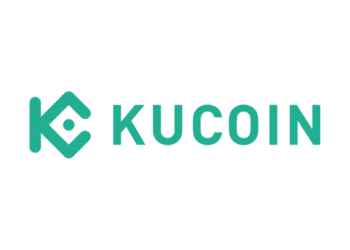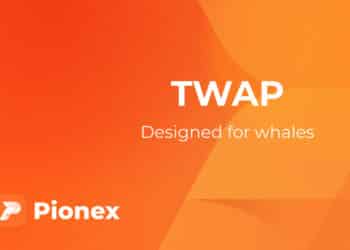With investors eager to cash in on cryptocurrency’s high returns, the craze has been on for some time now. There is a lot of work involved in finding the best platform to purchase and sell crypto assets.
In spite of this, there is considerable doubt about the legitimacy of some crypto trading sites. It is therefore important to look at an exchange platform’s security first.
However, in addition to buying and selling, a decent exchange platform should include additional features such as staking incentives, margin trading, cryptocurrency technical analysis tools, and so on. In the following section, we’ll review the best cryptocurrency exchanges and their most important features.
10 Best Crypto Exchanges
| Exchange | Fees | Currencies | Best for | Account minimum | Website |
 | 0.01 – 0.4% per trade | 312 | Best overall | $0 | visit |
 | 0 – 0.5% per trade | 54 | New cryptocurrency investors | $10 | visit |
 | 0.08% – 0.1% per trade | 344 | Low trading fees | $0 | visit |
 | 0.50% per transaction | 80 | Bitcoin-focused investors | $2 | visit |
 | 0.25% per transaction | 90 | Best customer support | $2 | visit |
 | 0 – 0.35% per trade | 190 | Best for portfolio diversification | $3 | visit |
 | 0.2% per transaction | 180 | Best for margin trading | $0 | visit |
 | 0.12% – 0.25% per trade | 180 | Best for scalping | $20 | visit |
 | 0.12% – 0.25% per trade | 200 | Excellent trading platform | $10 | visit |
 | 0.25% floating rate + fixed fee | 250 | Instant transactions | $50 | visit |
 | 0.5% – 3.99% per trade | 50+ | Security | $0 | visit |
 | 0.1% per transaction | 380 | Experienced traders | $0 | visit |
What is a crypto exchange?
A cryptocurrency exchange is a place where you may purchase and sell digital currency. You can use exchanges to swap cryptocurrencies, such as Bitcoin for Dogecoin, or to purchase cryptocurrencies with fiat money, such as the US dollar, for example.
Exchanging platforms always display the current market price for each cryptocurrency. In addition, many of these platforms allow for the conversion of cryptocurrency to fiat currency until such a time that you are ready to withdraw them.
How does a cryptocurrency exchange work?
Cryptocurrency exchanges function as brokers between buyers and sellers of the digital money they trade, like traditional brokerage firms. A buyer can fund their account in a variety of ways, including by a direct bank transfer or by using a debit or credit card. Using its services entails paying some fees or commission.
In order to initiate a position, you’ll need to create an exchange account and deposit the full value of the asset. You’ll then need to store your crypto asset in your wallet until when you’re ready to sell or convert.
Is using cryptocurrency exchange risky?
Because of the enormous amounts of billions of dollars worth of assets at stake, exchanges are attractive targets for hackers. Also, the exchange may be mismanaged, resulting in problems for hundreds or thousands of investors.
If you’re concerned about being a victim of a high-profile hack, it’s a good idea to choose a respected and extremely secure exchange.
How to open a crypto exchange account?
When it comes to signing up for a cryptocurrency exchange, here are the common steps:
- You’ll first need to enter some basic personal information, such as your name and email address. After that, you’ll need to include a payment method.
- A “Know Your Client” (KYC) process, which is essentially just identity verification, may be required depending on the nature of the trade and the extent of your investment.
Is a credit card or bank transfer accepted by crypto exchanges?
Despite the fact that individual cryptocurrency exchanges may support a variety of payment methods, the overall trend is the same across most platforms. Most exchanges accept card transactions and direct bank transfers to buy cryptocurrency.
Bank transfers are a feasible alternative to credit cards in nations where credit cards are restricted. Also, it is essential that you be aware of withdrawal fees when transferring crypto from one exchange to another.
What is the best crypto exchange for beginners?
Cryptocurrency exchanges are not all created equal. Finding a cryptocurrency exchange that corresponds with your personal objectives should be of paramount importance. Generally, there isn’t much difficulty in opening an account on most of the platforms. In most cases, patience and perseverance are all that is required.
How to buy crypto?
In order to buy digital currency, you’ll need a digital wallet, which is an app that can store your digital money. To acquire cryptocurrencies, you often need to open an account with an exchange and then transfer fiat money to be used in the purchase. The digital wallet is the place where a seller can transfer crypto units to another user’s wallet. Many exchanges allow the creation of free wallets on their site.
Is cryptocurrency taxable?
You must pay taxes on cryptocurrency. For US residents, the Internal Revenue Service (IRS) considers cryptocurrencies to be property, and transactions involving cryptocurrency are taxed in the same manner as transactions involving other property.
Cryptocurrency transactions are subject to taxes if you gain profit from them. On its own, the purchase of cryptocurrency is not taxed. It’s tax-free to invest in and hold cryptocurrencies, even if their value rises.
Things to consider when choosing the best crypto exchange
Consider the following while prioritizing:
Payment methods
It all begins with a single investment. Regardless of how big or small, your crypto transaction is, you will need to fill your account with an approved payment method. Credit cards, Paypal, debit cards, and digital assets are the most often used payment methods.
The fees incurred can vary depending on the type of payment you use to make your transaction. Digital coin deposits are generally the most cost-effective method of deposit. If you want to save money, you should look for a payment option that is both safe and cost-effective.
User-friendliness and trading tools
When all is said and done, an exchange’s primary duty is the safety and security of investors’ assets. While some systems include capabilities for market analysis and charting, there are others that don’t. If you’re looking to go beyond “hodling,” charting and analysis resources are essential. In order to become an active trader, you need to look for platforms that have trading tools.
Additionally, a good exchange must have a user-friendly layout that isn’t too congested and is straightforward to navigate. Integration with external systems like payment wallets should be seamless and intuitive.
Coins and fiats selection
You should always take a keen look at the types and number of cryptocurrencies that may be bought and sold on the exchange. If you’re only interested in one coin, you may be able to use a crypto exchange that exclusively accepts that single coin. Instead of wanting access to more fiat money, those who are crypto-obsessed prefer to own a variety of both crypto and fiat money.
It’s not enough to simply have crypto coins in your account if no one trades them. There should be hundreds of millions of dollars worth of crypto trading every day for you to feel confident that your crypto will be freely exchangeable when you want or need them to be.
Fees
You may be charged a flat fee or a percentage of the value of your trades when exchanging crypto, depending on the service provider. Based on price volatility, fees might range from a flat fee to a percentage of the transaction. A greater charge may be worth it if the exchange offers additional protections or security or if it provides additional functions you value.
Verification (KYC) process
In order to meet anti-money laundering requirements and guarantee the legitimacy of an investor’s identity and address, the KYC (Know Your Customer) validation process is required.
Each exchange has a slightly different KYC process, but for the average person, it only involves a few fast inputs. Additional verification could include your address, national ID, phone contact, or even a photo of you carrying that form of ID.
Restrictions
Because of local or national regulations, you may be unable to buy or sell cryptocurrency on some exchanges. Cryptocurrency trading has been outlawed in several countries, such as China.
In most cases, you may find information regarding a currency exchange’s geographic restrictions and associated accessibility considerations, such as the currencies that are accepted on its website or in terms of service.
There is a great deal of regulatory ambiguity around cryptocurrencies in the United States, and several states have enacted their own laws.
Understanding the types of crypto exchanges
Centralized exchanges (CEXs)
A central authority controls the buying and selling of digital assets on these cryptocurrency exchanges. Both the buyer and the seller must rely on a third party to monitor the transaction and safeguard their assets while they are using the platform.
On top of that, transactions aren’t saved on the blockchain. Such transactions need the provision of personal data for verification purposes. As a trusted intermediary, a CEX facilitates trade and protects the tokens it handles. CEXs also vet new crypto assets for suitability before listing them for trading.
Decentralized exchanges (DExs)
Decentralized exchanges allow users to conduct peer-to-peer transactions without the need for a third party to act as a middleman. It is not possible to convert digital assets to fiat currency or vice versa on these exchanges, which exclusively support crypto-to-crypto assets. As a precaution, a blockchain ledger records every transaction.
Due to their restricted functionality and lack of a central authority to take responsibility for any transaction mishaps, DEXs have relatively low trading volumes and low liquidity.
Peer-to-peer exchanges
The role of a peer-to-peer exchange is to link two different traders. Businesses typically pay a percentage of each transaction or a set fee per transaction to cover the costs of the website’s services. P2P trades typically have a reputation system in place to keep track of both your own and other users’ trading records.
As a result, your odds of a successful trade grow. In these platforms, trust is especially vital because you’re dealing with other traders directly, and their funds are not being monitored or managed by the platform owners.
Retail exchanges
A common characteristic of retail exchanges is their user-friendly interfaces. Even if you have no prior knowledge, you should be able to figure out where all the necessary components are located. So there are fewer complications with transactions; they generally supply their own wallets.
Retailers have a variety of methods of operation. Others facilitate crypto-to-crypto exchanges, while a few offers solely fiat to crypto trades.
Instant exchangers
Such entities offer non-custodial transactions, which work slightly differently, but the same principle applies. The process of exchanging currency is as simple as opening a web browser, choosing the desired currencies, entering an amount, and then clicking “Exchange.”
These services are able to function in the manner in which they do so because they make use of a variety of different exchanges. You can rest assured that the coins you’re looking for will be obtained in the quickest time possible, thanks to a variety of sources. Changelly is a well-known instant exchanger.
Top 10 Best Crypto Exchanges
FTX

| Fees: | tiered fees structure based on 30d volume (0.1% maker, 0.4% taker for tier 1; 0.00% maker & 0.05% taker for tier 9) |
| Currencies: | 312 |
| Best for: | Pro traders |
| Account minimum: | $0 |
Features
- Regulated by the Securities Commission of the Bahamas
- FTX division for US clients available (FTX.US)
- 446 markets, 312 coins, and tokenized stocks provided
- No minimum deposit
- Supports USD, EUR, GBP, AUD, HKD, SGD, ZAR, and CAD for fiat funding
- Offers futures, spot, leveraged tokens, options, volatility, and prediction markets
- 101x leverage on futures and 3x leverage on leveraged ERC2.0 tokens
- Depositing and minting of NFTs (only available on FTX.US)
- Over-the-counter (OTC) trading provided for large-volume traders
- FTT utility token providing numerous perks
- Staking rewards available for FTT, SOL, RAY, SRM
- No deposit/withdrawal fees for most digital assets
- Mobile app available for Android and iOS users
- VISA-branded FTX card (not yet available in all supported regions)
Pros
- One of the largest exchanges globally by trading volume
- Android and iOS mobile apps available
- Affordable trading fees
- Wide range of trading options
Cons
- More suited towards advanced traders/investors
- No live chat or phone help
- Still a relatively new exchange
Bitstamp

| Fees: | 0 – 0.5% trading fee; 15% is charged for Ethereum staking and 5% for card purchase |
| Currencies: | 54 |
| Best for: | New cryptocurrency investors |
| Account minimum: | $10 |
Features
- Founded in 2011, Bitstamp is a Luxembourg-based digital currency trading platform. However, it has offices and clients all across the globe, including US.
- For both people with personal accounts and organizations with corporate accounts, it supports fiat-to-crypto transactions.
- Provides bespoke facilities to institutional clients
- Low trading fees
- No deposit fees for crypto
- 10 $/£/€ account minimum (0.002 BTC for BTC markets; 0.002 ETH for ETH pairs)
- 54 coins and about 138 markets
- Funding is available via crypto, bank transfer, credit/debit card, ACH (for the US), SEPA (for the EU), Faster Payments (for the UK)
- Staking provided for Ethereum (4.94% APR) and Algorand (5% APR)
- Integrated with TradingView
- 24/7 phone and email customer service
- Mobile app available for Android and iOS users
Pros
- Been in business since 2011.
- Excellent mobile app.
- Zero-cost crypto funding.
- Reasonable trading fees.
- Low minimum required to start trading.
- Supports fiat-to-crypto exchanges (USD, EUR, and GBP pairs).
- Advanced traders will benefit from the Pro platform.
- Charts provided by TradingView.
- 24/7 phone and email customer service.
Cons
- Not many available coins like some other exchanges.
- Only two cryptocurrencies available for staking presently.
- They do not offer margin trading.
OKX

| Fees: | 0.08% maker and 0.10% taker fees |
| Currencies: | 344 |
| Best for: | Low trading fees |
| Account minimum: | $0 |
Features
- Provides 344 cryptocurrencies
- 0.08% maker and 0.10% taker fees
- No account minimum
- Provides basic spot, margin, perpetual swaps, options, and futures trading
- Funding/withdrawals via crypto, bank wire, credit/debit card, and Apple Pay
- Supports over 30 fiat currencies for payments
- Has its own blockchain (OEC)
- OKB utility token
- Trading is done via browser, desktop, and mobile applications
- Built-in wallet to store coins, NFTs and provide access to other DeFi services
- Additional DeFi earning, lending, and token sale platforms
- Provides different mining pools
- Bridge to transfer crypto-assets across different blockchains
- Phone, email, and live chat support
Pros
- One of the largest exchanges by daily trading volume
- A broad range of tradable coins available
- No starting account balance
- Offers numerous trading types
- Different customer options
- Has utility token
- Mobile app provided
- Offers many other crypto-related services
Cons
- Not available in the US
- Less suitable towards beginners
- Complex fee structure
Coinbase

| Fees: | 0.50% spread for buy/sell transactions; transaction fee from $0.99 to $2.99; up to 0.50% for Coinbase Pro |
| Currencies: | 80 |
| Best for: | Bitcoin-focused individuals |
| Account minimum: | $2 |
Features
- One of the most notable features of Coinbase is that it is the largest crypto exchange in the United States in terms of volume.
- Additionally, the company’s stock is traded on the Nasdaq stock exchange. Traders can access more than 60 cryptocurrencies on the platform, making it more diverse than many others.
- Coinbase has launched its own stablecoin, the USD Coin, which is pegged to the value of the United States dollar.
- The Coinbase app is available for both Android and iOS devices, making it easy for customers to store their cryptocurrency there for free.
Pros
- It is the largest cryptocurrency exchange in the United States
- This company is publicly traded on the Nasdaq
- The number of cryptocurrencies available now exceeds 80
- Insurance coverage is available
- There is a digital wallet service on the market
Cons
- This exchange charges a higher fee than others
- It has a complicated fee structure
Kraken

| Fees: | A flat rate of 0.25% on every trade |
| Currencies: | 90 |
| Best for: | Customer support |
| Account minimum: | $2 |
Features
- US-based Kraken offers three tiers of membership: starter, intermediate, and professional. With the starter account, you can deposit, trade, and withdraw your assets.
- Kraken’s Pro account is where the platform really shines for more experienced traders. You can get access to margin trading as well as trading on crypto futures.
- If you are in no hurry to trade, you can also stake your crypto.
Pros
- It has high-quality security features
- It has an attractive user interface
- It is a well-established and trustworthy site
- Supports 7 fiat currencies
Cons
- Beginners may find it too complex
- It takes a long time to verify an account
Bittrex

| Fees: | Between 0-0.35%, exclusive of withdrawal fees. |
| Currencies: | 190 |
| Best for: | Portfolio diversification |
| Account minimum: | $3 |
Features
The platform supports crypto-to-crypto trading and a list of over 190 cryptocurrencies from which users can choose to trade. However, fiat currency trading is not supported. For the most part, this exchange has a more straightforward fee structure.
Pros
- Account minimums are low
- Supports over 100 cryptos
- Supports several trading pairs
- High security with cold storage for assets and two-factor authentication
Cons
- Does not support margin trading
- Beginners have a limited variety of educational resources
- Their customer support is limited
Gate.io

| Fees: | No fees for deposits, 0.2% charged for spot and margin trading. There is a small withdrawal fee that changes depending on the cryptocurrency being withdrawn. |
| Currencies: | 180 |
| Best for: | Margin trading |
| Account minimum: | None |
Features
- Deposits and withdrawals on Gate.io may only be made using cryptocurrency wallets, as the platform does not handle any fiat currencies.
- All account users on Gate.io have access to free wallets on the site. You’ll have to pay a fee to withdraw your money, which varies depending on the coin you’re using.
- The platform also has withdrawal limits, which should be taken. Withdrawal limits set by the platform should be taken into consideration by investors as well. For example, you are limited to taking a maximum of 100 BTC each day.
- The platform is unregulated as of the time of this writing.
Pros
- They charge just 0.2% as a trading fee
- Charges no fees for depositing or withdrawals
- An easy-to-use platform
- Support for a wide variety of cryptocurrencies
Cons
- It does not support fiat deposits.
- New users may find it difficult to navigate because the interface looks congested.
CEX.io

| Fees: | Taker fee 0.25% and 0.20%; maker 0.16% and 0.12%. |
| Currencies: | 180 |
| Best for: | Scalping |
| Account minimum: | $20 |
Features
- The platform is accessible by users from almost all the countries in the world, including all but 5 US states.
- Users can withdraw and deposit using debit and credit cards.
- Automated algorithmic matching of orders ensures dependable order books and order fulfillment. This means that high-frequency traders and scalpers can trade more effectively because it is easy to find your orders.
Pros
- Deposits and withdrawals can be made using a credit or debit card.
- Beginner-friendly interface, making it effortlessly accessible.
- Unrestricted withdrawals are due to high liquidity.
- They have a fantastic app for mobile trading.
Cons
- Their fees are relatively high
- They support only a few different currencies
- They have a weak customer support system
- There are no advanced order types
Bitfinex

| Fees: | The taker fee is 0.25%, and the maker fee is 0.12% |
| Currencies: | 200 |
| Best for: | User-friendly trading platform |
| Account minimum: | $10 |
Features
There are over 200 cryptocurrencies that may be traded on the site. The site also supports fiat currency deposits. To make a fiat deposit, a person must first prove their identification.
Pros
- A well-known brand
- They have derivatives with a high degree of leverage
- No restrictions on withdrawals
- Good for anonymity
- Has a dedicated mobile app for in-house use
- There are several payment options
Cons
- In 2016, it was hacked, and its reputation was badly damaged
- It requires a time-consuming verification procedure
- Trading volume has decreased since 2016
Changelly

| Fees: | 0.25% floating rate and a varying fixed fee |
| Currencies: | 200 |
| Best for: | Instant transactions |
| Account minimum: | $50 |
Features
- Changelly supports more than 90 cryptocurrencies and tokens, making it one of the most comprehensive services out there.
- It currently doesn’t support fiat currency conversions and solely performs crypto-to-crypto transactions.
- With an easy-to-use interface, tools for quickly determining the best exchange rate, and support for a wide range of currencies and payment methods.
Pros
- Variety of cryptocurrencies to choose from
- Low fees for exchanging crypto for crypto
- Works with a variety of payment systems
- Users can be anonymous
- A friendly user interface
Cons
- Unregulated in the United States
- They charge high fiat to crypto exchange rates
- There are a few payment options
- They require high minimum trade amounts
Gemini

| Fees: | 0.5%-3.99% |
| Currencies: | 50+ |
| Best for: | Security |
| Account minimum: | $0 |
Features
- The platform supports trading in over 40 crypto assets, including the Gemini dollar, which is tethered to the US dollar.
- The majority of the coins traded on Gemini are kept in cold storage
- However, Gemini doesn’t support credit and debit card deposits
Pros
- A high level of security
- A user-friendly interface
- Does not charge deposit fees
- There is a lot of liquidity on the trading platform
Cons
- Only available in a small number of countries
- Requires a lot of information about users
- They charge relatively high fees
Kucoin

| Fees: | 0.1% |
| Currencies: | 380 |
| Best for: | Best for experienced traders |
| Account minimum: | $0 |
Features
- KuCoin offers both custodial and non-custodial services. This gives users the option of either storing the coins on the platform or trading them via an integrated third-party platform. Those who desire to always be in control of their coins may like this alternative.
- In addition, KuCoin stands out for its trading bots and its support for leverage and margin trading.
- The native token of the exchange, KCS (KuCoin Shares), offers users a wide range of incentives for holding and staking the asset.
Pros
- Many trading pairs are available to users
- They do not run on KYC (Know Your Customer) model
- Staking and earning crypto is an added advantage
Cons
- As a Crypto-only exchange, it may be tough for newbies to use
- Trading volumes on KuCoin are significantly lower than those on more established platforms
- It does not support fiat currencies
- It doesn’t have an option for bank deposits
In conclusion
Here, we have attempted to give you an objective assessment of the finest cryptocurrency exchanges. It’s now up to you to select which of these is most suited to your specific objectives. These sites may not be perfect for you, but we’ve also outlined a few things to keep in mind when searching for a good platform.







